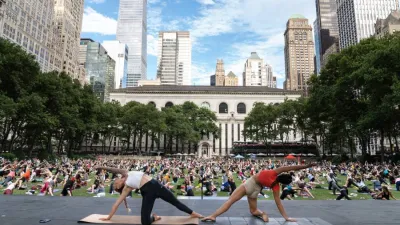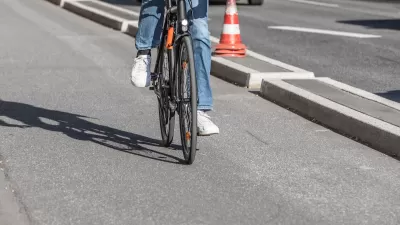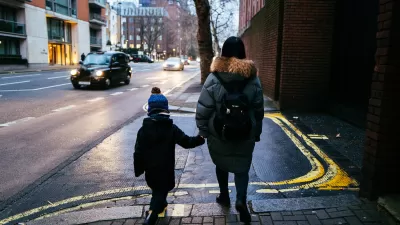New analysis of National Household Travel Survey data shows that the United States has a long way to go to overcome the dominance of the automobile for daily travel.

A new study published by the Journal of Transport & Health documents changes in walking and cycling for daily travel among U.S. residents between 2001 and 2017. The study, published in the March 2020 volume of the journal, uses National Household Travel Survey (NHTS) data to examine the extent to which rates of walking and cycling have changed along demographic, socioeconomic, and geographic lines.
According to the abstract and highlights from the study, the findings of the analysis include the finding that slightly more Americans are walking every day and cycling stayed steady. "There was substantial demographic, socioeconomic, and spatial variation for each year and over time," according to the post.
The lack of progress in substantially changing the numbers of walkers and bikers, however, inspires the author of the study to call on government officials to invest more in bike and pedestrian infrastructure.

Planetizen Federal Action Tracker
A weekly monitor of how Trump’s orders and actions are impacting planners and planning in America.

Congressman Proposes Bill to Rename DC Metro “Trump Train”
The Make Autorail Great Again Act would withhold federal funding to the system until the Washington Metropolitan Area Transit Authority (WMATA), rebrands as the Washington Metropolitan Authority for Greater Access (WMAGA).

The Simple Legislative Tool Transforming Vacant Downtowns
In California, Michigan and Georgia, an easy win is bringing dollars — and delight — back to city centers.

The States Losing Rural Delivery Rooms at an Alarming Pace
In some states, as few as 9% of rural hospitals still deliver babies. As a result, rising pre-term births, no adequate pre-term care and harrowing close calls are a growing reality.

The Small South Asian Republic Going all in on EVs
Thanks to one simple policy change less than five years ago, 65% of new cars in this Himalayan country are now electric.

DC Backpedals on Bike Lane Protection, Swaps Barriers for Paint
Citing aesthetic concerns, the city is removing the concrete barriers and flexposts that once separated Arizona Avenue cyclists from motor vehicles.
Urban Design for Planners 1: Software Tools
This six-course series explores essential urban design concepts using open source software and equips planners with the tools they need to participate fully in the urban design process.
Planning for Universal Design
Learn the tools for implementing Universal Design in planning regulations.
Smith Gee Studio
City of Charlotte
City of Camden Redevelopment Agency
City of Astoria
Transportation Research & Education Center (TREC) at Portland State University
US High Speed Rail Association
City of Camden Redevelopment Agency
Municipality of Princeton (NJ)





























